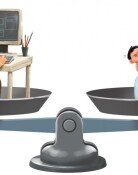Youth Credit Delinquency Questions and Answers
Youth Credit Delinquency Questions and Answers
Posted March. 23, 2005 22:28,
―How do low-income individuals pay back their debt and principal?
Recipients of the National Basic Livelihood Security Act will be granted an extension in their repayment of the principal while they are receiving support from the government. After being lifted from the low-income bracket, the debt is to be paid back at the maximum, in 10 years, without interest. The overdue interest up to the current and future interest amount will all be exempted.
―Where can they go to apply for an extension for debt repayment?
The Korea Asset Management Corporation (KAMCO) will send a notification after it purchases the recipients debt from the bank, and then the individual can apply to KAMCO. However, the financial company may not hand over the bond, so this system will not apply to all those receiving financial support from the government. Consult with KAMCOs call center at 1588-3570.
―Those subjected to youth credit delinquency are
Among the credit delinquents listed at the end of last year, there were: student loan debtors; soldiers; those who were underage (under 19) at that time; and those who were burdening liabilities for guarantees of their parents.
―What will happen if a youth credit delinquent is granted an extension for debt repayment?
Their repayment will be extended for up to two years at most until they get a job or start a business and start earning money. When they have the capability to pay back, the principal can be repaid over a maximum of eight years. If the principal is paid back within the arranged time period, the overdue interest and future interest will all be exempted.
―The standard for a low-income self-employer is
Businessmen subjected to simplified taxation with annual sales under 48 million won and credit defaulters running tax-free businesses, recorded to be some 153,000 people as of the end of last year, which are all subjected to low-income self-employers.
―How do self-employers receive extensions for debt repayment?
Since they have an income source, their repayment will be given a grace period of one year at the maximum, in which an annual five percent interest rate will have to be paid during the grace period. When this period ends, the principal is to be paid back throughout eight years at the longest, and if the principal is repaid during the granted time, the interest will be exempted, which is the same as with youth credit delinquents.
―Where do youth credit delinquents and self-employers receive rescheduling?
The Credit Counseling and Recovery Service (CCRS) is planning to put out an agreement to support credit recovery during April. It is to be applied to both individuals with debts at just one financial institution and those with debts at more than one institution. You may call the CCRS call center at 02-6637-2000 for a consultation to find out if you are eligible or not.
―Will banks provide separate support measures for the self-employed?
The self-employed have an unsteady income, and so there is a limit to recovery just through rescheduling. Banks are planning to give additional loans at long-term low interest for self-employers who are trying to change or improve their current business. Seven banks, including Kookmin, Woori, Hana, Shinhan, Chohung, Industrial Bank of Korea, and National Agricultural Cooperative Federation will announce detailed plans in time. A measure to loan, at most, 20 million won at a 6.0-8.0 percent interest rate for 10 years and six months at the maximum is being pushed. Single debtors can apply for the loan at their corresponding bank, and multiple debtors can apply to the bank where they have the highest debt.
Chang-Won Kim changkim@donga.com







